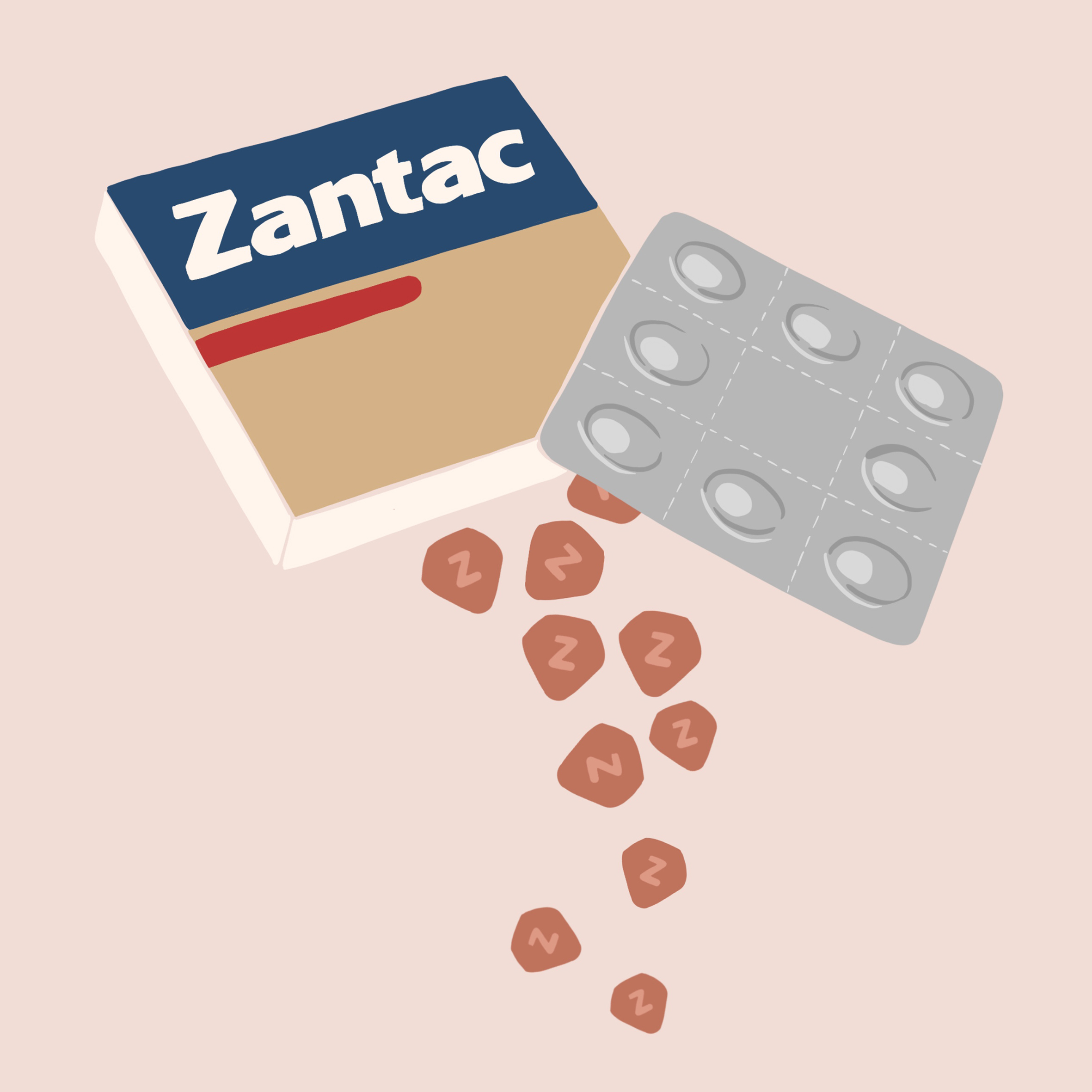On Nov. 1, the FDA asked manufacturers to voluntarily recall antacids containing ranitidine and nizatidine, which are chemically similar, if the agency or manufacturers find they contain unacceptable levels of the contaminant and potential carcinogen NDMA.
Ranitidine and nizatidine are used for heartburn, ulcers, gastroesophageal reflux disease and other indications. Rinatidine is the active ingredient in brand name Zantac and its generic formulations. Nizatidine is sold over-the-counter under the brand name Axid although there is a generic form of the prescription version.
Until recently ranitidine has been widely prescribed to infants and adults due to its perceived safety.
However, the FDA has found unacceptable levels of NDMA in some ranitidine syrups, which are primarily used for newborns and children. These medicines are being recalled.
“We understand the concern we’ve been hearing from parents and pediatricians, and we’ll continue to investigate,” Janet Woodcock, director of the FDA’s Center for Drug Evaluation and Research, said in the statement which was issued in her name.
NDMA (nitrosamine N-nitrosodimethylamine) is known to cause cancer in laboratory animals and has been classified by the International Agency for Cancer Research of the World Health Organization as “probably carcinogenic to humans.” NDMA can occur as a byproduct of industrial processes and can be present as a pesticide contaminant. Everyday exposures can come from drinking water, tobacco smoke and chewing tobacco, cured meats, cheese, beer, vegetables and other foods.
How Concerned Should Consumers Be?
The FDA investigation test summary indicates that the agency found NDMA levels as much as seven (Zantac 150 mg OTC) and nine times (Novitium ranitidine 300 mg) higher than the agency’s own acceptable NDMA exposure limits of .032 parts per million.
There’s some confusion as to how this translates to actual health risk for consumers.
“Through our testing so far, we have found levels of NDMA in ranitidine that are similar to the levels you would expect to be exposed to if you ate common foods like grilled or smoked meats,” Woodcock stated.
FDA Consumer Recommendations
The FDA has suggested consumers consider replacing products containing ranitidine and nizatidine with other over-the-counter products approved for their condition.
The agency advised concerned prescription users to consult with their health care providers regarding alternatives.
Issue Timeline
The issue began on Sept. 13, when the Food and Drug Administration (FDA) first alerted the public that over-the-counter heartburn drugs containing ranitidine may contain NDMA.
The FDA September statement came four days after the agency had received a citizen petition requesting that the agency issue a ranitidine recall and take related consumer health safety measures. The petition was filed by online pharmacy Valisure, which had detected extremely high levels of NDMA in ranitidine during routine internal drug batch testing.
The FDA responded with its own investigation, initially detecting very low levels of NDMA that the agency said barely exceeded the amounts commonly found in foods.
The FDA attributed the levels of NDMA that Valisure found — more than 3,000,000 nanograms per tablet — on Valisure’s high-temperature testing methods which it said was intended for heart failure and blood pressure medications known as ARBs.
On Oct. 2 the FDA reversed course and reported that it had found “unacceptable levels” of NDMA in ranitidine samples, regardless of testing methods.
Confusion Over the Source of NDMA Contamination
Last year the FDA recommended numerous recalls of the widely prescribed ARB (angiotensin II receptor blocker) heart failure and blood pressure medications valsartan, losartan and irbesartan, all of which were manufactured overseas and contaminated with low levels of NDMA attributed by the agency to manufacturing quality issues.
The FDA initially attributed NDMA ranitidine contamination likewise to a manufacturing issue. However, Valisure asserted otherwise.
“Valisure’s research, along with that of Stanford University and others, found that NDMA was the result of the ‘inherent instability’ of the ranitidine molecule,” according to a Valisure blog post.
Valisure researchers reported that all medications containing ranitidine, brand or generic, could “generate very high levels of NDMA in the human body.”
In the Nov. 1 statement, Woodcock said that the agency has not detected the formation of NDMA from ranitidine in its tests which simulate what happens to ranitidine in the stomach and in the small intestine.
“However, we still must test the drugs in the human body to fully understand if ranitidine forms NDMA,” she stated.
Some Companies Took Prior Action
Some companies took action in response to the FDA October 2 announcement that the agency had found unacceptable levels of NDMA in some ranitidine products.
Retailers including Walmart, Walgreens, CVS and Rite Aid stopped selling Zantac and ranitidine. At least five generic manufacturers also issued prior voluntary recalls and Sanofi, the French manufacturer of Zantac, implemented a recall of its over-the-counter product.
Footnotes
'Statement alerting patients and health care professionals of NDMA found in samples of ranitidine.' U.S. Food and Drug Administration. September 13, 2019.
'Statement on new testing results, including low levels of impurities in ranitidine drugs.' U.S. Food and Drug Administration. November 1, 2019.
'Laboratory analysis of ranitidine and nizatidine products.' U.S. Food and Drug Administration. November 1, 2019.
